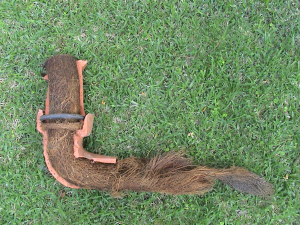Blocked drains can be one of the most frustrating things for a homeowner or business. Not only can blocked drains cause odours and bad smells, but they can also lead to flooding, structural damage and other serious problems. Knowing how to tackle a blocked drain is important, but first it’s important to understand what causes them. In this article we’ll explore the common signs of a blocked drain, as well as how to prevent a blockage and fix them when they do occur. For more information , please read on.
What Causes a Blocked Drain?
The majority of blocked drains are caused by an accumulation of everyday items such as hair, soap scum and fats. When these items build up, they form an obstruction that blocks water from flowing freely through the pipe. This eventually leads to a full blockage, resulting in slow drainage, gurgling sounds and even unpleasant smells.
Signs That You Have a Blocked Drain
One of the tell-tale signs of a blocked drain is slow draining water, particularly in showers and baths. Other signs include foul odours coming from drains, gurgling sounds, pools of water gathering around the drain and overflowing toilets.

Diagnosing the Blockage
Once you’ve noticed the signs of a blocked drain, diagnosing the blockage becomes the next step. To do this, you may need to consult with a professional plumber who can use specialist tools such as a CCTV camera to identify the problem. If the blockage is within reach, using a plunger to try and remove the debris is another option.
How to Prevent Blocked Drains
The best way to avoid dealing with a blocked drain is prevention. This involves regularly cleaning your drains and avoiding activities that may clog them. For example, not putting grease down sinks and disposing of large objects in bins rather than flushing them down the toilet.
Clearing a Blocked Drain
If the blockage has already occurred, it’s important to take action quickly. Using a plunger or drain snake are two of the most common ways of removing blocks. These should be used carefully and gently, as harsh treatment can damage pipes. If the blockage persists, calling a professional plumber might be a better option.
When to Call a Professional
In some cases, DIY solutions won’t be enough to clear a blocked drain and you will have to call a professional. A good indication of this is if the blockage continues to reoccur or if it occurs in multiple locations. In these instances, professional plumbers will be able to quickly and safely identify any underlying issues and provide a solution that gets to the root of the problem.
Blocked drains can cause a lot of headaches, both from an inconvenience and a financial point of view. However, being proactive and taking the necessary steps to prevent blockages can help homeowners avoid unnecessary stress in the future. If a blockage does occur and none of the above remedies work, then calling a professional plumber is usually the best move.

